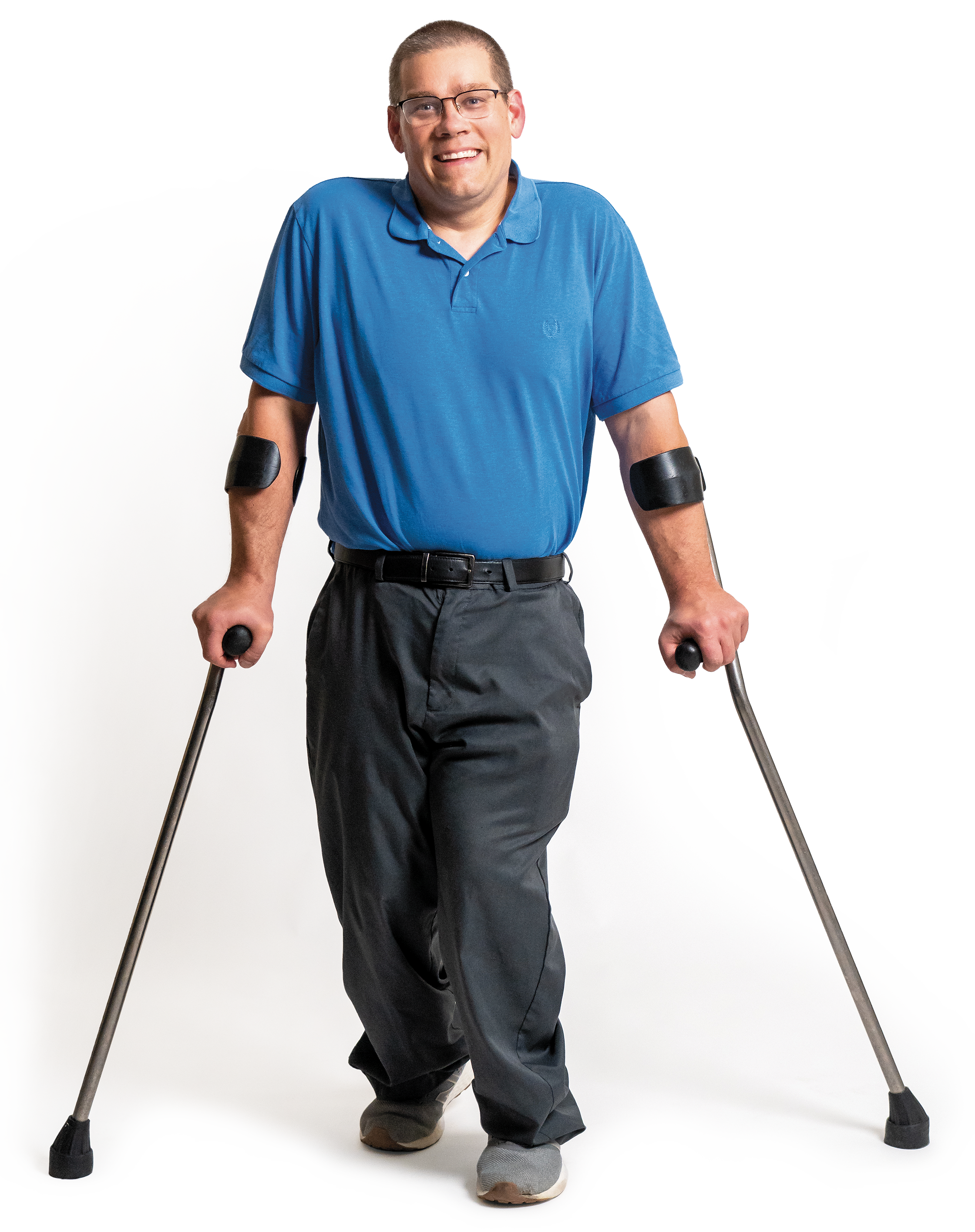Portrait
A mentor

Cort Schneider embraces his various identities as a father, husband, runner, author, and, in his own word, “crip.”
“I am a proud person with a disability, and I have a dark sense of humor,” said Schneider, who was born with cerebral palsy and walks with crutches. “I refer to myself as a crip in a positive way. In fact, I’m hoping to teach a class at some point called The Rise of the Crips, which is a history of the disability rights movement in the United States.”
Another part of Schneider’s identity is his role at UR: director of disability services. His office is a conduit connecting Richmond students with disabilities to the resources they need for access to an equitable educational experience.
“I like to phrase it this way,” said Schneider, who came to UR from Duke University in May. “We want students to take advantage of the full Spider experience.” Resources can include, for example, classroom-based accommodations, such as extra time on tests for students with a processing disability or a distraction-free testing environment for students with ADHD. “But it can also include things like housing and dining — anything that has to do with access to any part of campus that affects a student, we can have a role in that if it’s requested.”
He envisioned a different future as a teenager and in college. A sports guy at heart, he wrestled in high school but never saw improvement. Then his coach cajoled him onto the cross country team. Once Schneider overcame his reluctance, he developed technique and saw his times decrease from 48 minutes to 35 minutes. He wasn’t breaking any ribbons at finish lines, but he could see himself getting faster.
In college at Ohio University, he majored in history and focused on sports broadcasting, calling football and hockey games for the OU Bobcats and weighing job offers in radio after graduation. Sitting in a booth and emanating out as a disembodied voice gave him a chance to feel what he sought at the time: “‘I’ll be normal,’ I thought. I always wanted to be normal.”
But he never felt normal and hated his disability. He signed up for a graduate education program so he could teach high school history or maybe get a doctorate and be a college professor. One day he found himself reading a theoretical work for fun about how hegemony works — basically the idea that some ideologies are so pervasive that people buy into them even if it harms them.
“I was sitting on a park bench, and I had this moment of Archimedean clarity,” he said. “Oh, my God. My view of my disability is all about this. I’ve bought into this idea that I’m inferior.”
That realization put him on a new trajectory, personally and professionally. He decided he could have more power to mentor students as the director of a disability office than as a professor, so he pursued a doctorate in cultural studies in education. He wrote a dissertation on identity development that completed a turnaround in how he thought about himself and the role he could play for other people with disabilities.
“I wanted to create a space where people could be as disabled as they need to be,” he said. “I’m not a counselor, but that understanding of identity allows me to talk to parents and students about their disability.
“When students come to me, I always tell them, ‘You’re powerful, you’re amazing, you’re strong, you’re incredible, and you’re also disabled. Those things are not mutually exclusive.’”
Photograph by Jamie Betts